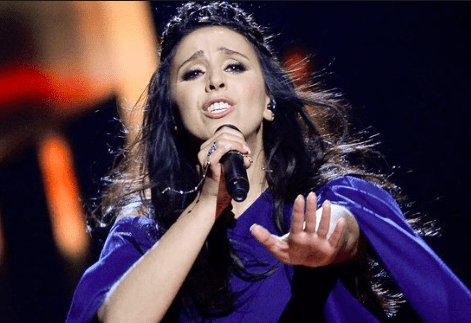About 200 million people tuned in to the Eurovision Song Contest last night, and will have seen Britain finish third-last. The country of Adele, Ed Sheeran, the Mumfords and The Beatles was defeated by countries with a twentieth of our population (and musical talent) – so what’s going wrong? The answer is fairly simple: the UK entry is controlled by the BBC. Asking it to choose a Eurovision Song Contest winner is like asking the Parliamentary Culture Committee to choose a Christmas No1.
I’m a huge fan of the BBC and its Eurovision coverage is generally first class, as are Paddy O’Connell and Graham Norton. But choosing a winning musical act is a another skill. This year, the BBC lined up two contestants left over from The Voice, its talent show, and paired them up (Joe & Jake) and their song wasn’t bad. They were perfectly nice guys singing a perfectly nice song – but this isn’t enough for Eurovision.
Those who watched last night know we can’t complain about an anti-British bias. Compare Joe & Jake to the stunning vocal performances of Ukraine’s Susana Jamaladinova (a proper musician, a spinto soprano, and last night’s winner) or Australia’s Dami Im (a child prodigy and Australian X-Factor winner). Compare the UK choreography to the showmanship and professionalism of Sergey Lazarev, one of Russia’s most successful pop singers. These countries are putting out their very best. In recent years, the BBC’s entries have been so poor as to be a passive-aggressive insult to an entire continent. Last night’s was a bit better, but not much better. The song didn’t even chart in Britain. If the Brits don’t like it, why do we think other Europeans would?
This year, there was a bit of glasnost: the BBC held a pretend-ballot, asking both BBC4 viewers to press the red button and choose. This has allowed the corporation to wash its hands of last night’s embarrassment and declare it to be “a public vote”. But was it really? How many members of the public actually voted? Unlike most countries, the BBC won’t release this figure – not even under a Freedom of Information request (see this failed attempt).
A while back, I chaired an symposium at the Swedish Embassy asking why Britain does so badly in Eurovision: a mystery, given the depth of British musical talent. I posited my theory – that the BBC is to blame – and expected a rebuttal from one of the panellists, Kevin Bishop (who used to run Eurovision for the BBC, and produce Terry Wogan). Instead, here’s what he had to say:-
The problem is that the BBC is not run by entertainment people anymore, in fact there is nobody there. In Jim Moir’s days those people who ran entertainment knew about entertainment, and we haven’t had anybody like that for ten years. Nobody has got that passion and that’s what you need, somebody who’s got passion for entertainment.
The passion for popular entertainment has left the BBC, which is understandable. It’s a public service broadcaster and does certain things very well, but faces far-stronger competition in popular entertainment and has now lost its edge. And, to be frank, it has also lost its interest. How much did the BBC spend finding a Eurovision entry, compared to other nations?
Sweden was once in this morass: in 2002. It changed up, and triumphed. The television executive who oversaw that, Svante Stockselius, was also at the symposium at the Swedish embassy. Here’s what he had to say :-
The problem [with Britain] is that you are not really taking Eurovision seriously. You joke at it, you say it’s Eurotrash and you get fire by Graham Norton and Terry Wogan in saying this is just to laugh at. The day when this country takes this contest for seriously, that’s also when you become successful. If the BBC doesn’t take it seriously then maybe you should ask ITV to do it. They are also a member of the EBU [which runs Eurovision].
Surely Stockselius is right: the BBC should just admit defeat and subcontract finding a song for Europe to the ITV – which certainly does know how to run a talent contest (see X Factor). Britain does have talent, it’s just that the BBC won’t spend the time and money required to find it. It is now time to hand over to a broadcaster that can.







Comments